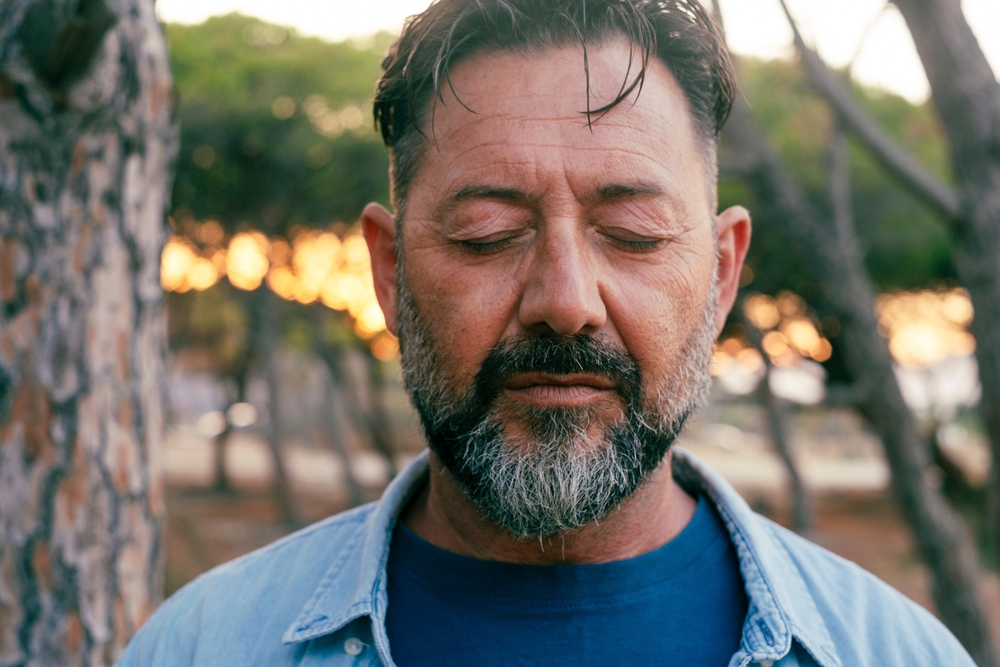The sensation of being lost or lonely can sneak up on you, like a sudden fog that transforms familiar landscapes into something unrecognizable and strange. It’s a state that can feel unbearably isolating yet paradoxically universal—a shared human experience that’s often left unspoken. When these feelings loom large, they demand our attention, not just for solace but for insight. Here are 15 questions to ask yourself, designed to crack open the shell of isolation and illuminate the path back to connection.
1. What Is This Loneliness Trying To Tell Me?

Emotions are like messengers, bringing news from the internal world that’s too often ignored. Loneliness doesn’t just show up; it has something to say about unmet needs or desires. According to a study published by Dr. John Cacioppo in the Journal of Cognitive Neuroscience, loneliness is more about the quality of your relationships rather than the quantity. It’s a call to examine what, or perhaps who, is truly missing in your life.
Ask yourself if you’re feeling lonely because you’re disconnected from others, or perhaps from yourself. Sometimes, we experience loneliness when we don’t feel seen or understood by those around us, and other times, it’s because we’re not attuned to our own inner world. Consider whether you’re ignoring certain parts of yourself in a bid to fit into roles that no longer serve you. The answer might give you a clue as to how you can start to reconnect.
2. Am I Expecting Someone Else To Fill My Void?

It’s a seductive but slippery slope to expect others to fill the gaps within us. Sure, people can enhance our lives, offering companionship and love, but they can’t be the architecture of our emotional fulfillment. When you place the burden of your happiness on someone else, you may be setting yourself up for disappointment. Remember, another person can support your journey, but they cannot walk it for you.
Ask yourself if you’re looking for external validation to complete you. Sometimes, the quest for connection can mask the need for self-acceptance. If you’re constantly seeking approval or attention, it may be time to explore why you feel incomplete without it. Acknowledge that true fulfillment comes from within, and it is often your own perception that needs to change, not your circumstances.
3. How Much Of My Loneliness Is Self-Inflicted?

It’s a tough pill to swallow, but loneliness isn’t always inflicted upon us; sometimes we participate in its creation. By withdrawing from others or building emotional walls, we can inadvertently deepen our sense of isolation. Dr. Guy Winch, a licensed psychologist and author, suggests that loneliness can lead to self-sabotaging behaviors that ironically drive away the connection we crave. It’s a vicious cycle, but one that can be broken with awareness.
Consider whether you’re engaging in habits that alienate you from others, such as canceling plans or avoiding meaningful conversations. These behaviors may feel protective, but often reinforce the loneliness you wish to escape. Reflect on whether you’re keeping people at arm’s length due to fear of vulnerability or rejection. Identifying these patterns is the first step in dismantling them and opening yourself up to genuine connection.
4. Am I Confusing Loneliness With Being Alone?

Solitude and loneliness often get tangled together, though they are fundamentally different experiences. Solitude can be a rich, fertile ground for creativity and self-discovery when embraced intentionally. It offers the space to reflect, recharge, and get reacquainted with your inner voice. However, when solitude is imposed and unwanted, it morphs into loneliness, painting isolation with a darker hue.
Ask yourself if your alone time is a choice or a burden. If you’re comfortable in your own company, solitude can be empowering rather than isolating. Yet if time alone leaves you feeling empty and disconnected, it might be a sign that what you truly desire is companionship. Understanding this distinction is crucial, as it shapes how you choose to engage with both yourself and the world around you.
5. What Limiting Beliefs Are Keeping Me Stuck?

We all carry stories about ourselves and our place in the world, scripts that can either liberate or confine us. Sometimes, these narratives are inherited from family or society, whispering tales of inadequacy or unworthiness. Research by Dr. Brené Brown highlights the power of vulnerability in rewriting these narratives, showing that the courage to face our stories can transform them. When you feel stuck, it’s time to question the plot you’re living out.
Reflect on the stories you tell yourself about why you’re lonely or lost. Are these narratives rooted in past experiences, or are they assumptions that have calcified into beliefs? By identifying and challenging these stories, you can reshape the narrative into one that empowers rather than ensnares. Allow yourself to write new chapters that reflect your evolving understanding of who you are and what you need.
6. What Would I Do If I Weren’t Feeling This Way?

Fear often masquerades as caution, convincing you that avoidance is the safest path. But in reality, fear is one of the most isolating emotions, whispering lies about what’s possible or permissible. When you feel lost or lonely, it’s worth examining how fear is influencing your choices and whether it’s holding you back from meaningful experiences. Ask yourself: What would change if fear didn’t have the final say?
Think about the risks you’ve avoided, the connections you’ve shied away from, the dreams you’ve postponed. How much of this is driven by a fear of failure or rejection? Recognizing fear’s grip on your life is the first step to loosening it. Courage is not the absence of fear, but the willingness to act despite it—often revealing new paths to fulfillment.
7. How Can I Nurture The Relationships I Have?

Feeling lost doesn’t always mean you lack connections; sometimes, existing relationships need tender care and attention. Dr. Sue Johnson, a leading authority on bonding and relationship science, suggests that secure, loving relationships are vital for emotional well-being. Loneliness can stem from neglect, rather than absence, of intimacy in your connections. By investing in what you already have, you might find the antidote you’re searching for.
Consider how you can deepen your existing relationships. Are you reaching out, making time, and showing appreciation to those who matter? Small acts of kindness and authentic communication can revitalize connections, turning acquaintances into confidants. By nurturing what you have, you create an ecosystem of support that lessens the weight of loneliness.
8. Am I Aligning My Life With My Values?

Living out of alignment with your core values can be a profound source of unease, manifesting as feelings of being lost. When your actions don’t reflect your deepest beliefs, you may find yourself in situations that feel hollow or unfulfilling. It’s a subtle but powerful disconnect that can erode your sense of self and direction. Reconnecting with your values can recalibrate your internal compass.
Ask yourself what truly matters to you, beyond the noise and expectations of others. Are your current pursuits in harmony with your ideals, or are you compromising what you hold dear? Realigning your life with your values can create a sense of purpose and clarity that counteracts feelings of aimlessness. It’s about living not just with intention, but with authenticity.
9. What Do I Need To Let Go Of?

Sometimes, feeling lost or lonely is a signal that you’re clinging to something-or someone—that no longer serves you. Whether it’s a toxic relationship, a stifling job, or outdated beliefs, holding on can prevent you from moving forward. Letting go is not about loss, but about making space for new opportunities and perspectives. It’s a liberating act that can pave the way for growth and connection.
Reflect on what’s weighing you down, and whether it’s time to release it. Letting go can be daunting, as it often requires surrendering the familiar for the unknown. But in letting go, you reclaim your power, allowing yourself to embrace the possibility of renewal. It’s about trusting that what lies ahead holds more promise than what you leave behind.
10. Am I Seeking Distractions Instead Of Solutions?

In a world filled with distractions, it’s easy to slip into avoidance mode, numbing loneliness with endless scrolling or binge-watching. These activities may offer temporary relief but seldom address the root of your discontent. It’s the modern escape route, a way to sidestep discomfort without truly engaging with the underlying issues. But solutions require your attention, not your avoidance.
Consider whether you’re using distractions to fill the void that meaningful actions could occupy. Are you seeking comfort in the temporary rather than confronting what’s truly unsettling you? Reflection and intentionality can break the cycle, leading to choices that enrich rather than deplete. It’s about replacing passive consumption with purposeful engagement, allowing you to craft a life that resonates with your needs.
11. Have I Forgotten How To Be Curious?

Curiosity is a powerful antidote to feelings of being lost, offering a lens through which the world becomes a place of endless possibility. It invites you to explore, ask questions, and seek new experiences, transforming the mundane into the magical. When loneliness sets in, curiosity can lead you back to a sense of connection and wonder. It’s an invitation to engage with the world, awakening a sense of play and discovery.
Consider how you can cultivate curiosity in your daily life. Are there new skills you’d like to learn, places you’d like to visit, or people you’d like to understand better? Curiosity shifts your focus from what’s lacking to what’s possible, igniting a sense of adventure that can dissolve isolation. By embracing curiosity, you open yourself to the unknown, finding joy in the search rather than the certainty.
12. What Would I Tell A Friend Going Through This?

It’s often easier to offer kindness to others than to extend it to ourselves. When you feel lost or lonely, imagine what advice or support you’d offer a dear friend in the same situation. This perspective shift can illuminate self-compassion and reveal the wisdom you already possess. You have the capacity to be your own source of strength and solace.
Ask yourself what comforting words or practical advice you’d share with a friend grappling with similar emotions. Would you remind them of their worth or suggest ways to reconnect with their passions? By embodying this supportive role, you not only practice empathy but also empower yourself to act on the guidance you’d readily offer someone else. It’s about being your own ally, treating yourself with the same tenderness and care.
13. Am I Taking Care Of My Well-Being?

The connection between mind and body is undeniable, and neglecting your physical well-being can amplify feelings of being lost or disconnected. Regular movement, nourishing food, and sufficient rest form the foundation of emotional resilience. When you’re physically depleted, it’s challenging to engage fully with life’s complexities and opportunities. By prioritizing your physical health, you create a stable platform for emotional exploration.
Reflect on whether you’re attending to your body’s needs or if they’re falling by the wayside. Are you allowing stress or neglect to compromise your well-being? Simple acts, like a nourishing meal or a brisk walk, can be profoundly grounding, reestablishing your connection to the world around you. By nurturing your physical health, you fortify your capacity to navigate emotional landscapes with clarity and strength.
14. How Can I Create A Daily Ritual That Grounds Me?

Rituals have the power to anchor us, offering stability amidst the turbulence of emotions. A simple practice, repeated daily, can bring a sense of predictability and calm to an otherwise chaotic mind. Whether it’s a morning meditation, journaling, or a walk in nature, rituals create a sacred space for reflection and renewal. They remind you of your capacity to shape your experience, offering solace in routine.
Consider incorporating a small, meaningful ritual into your daily life. What activity resonates with your need for grounding and reflection? Rituals are deeply personal, and their power lies in their ability to connect you with the present moment. By committing to a practice that aligns with your values and needs, you create a refuge for your mind and spirit amid the hustle of daily life.
15. What Am I Grateful For?

Gratitude is a transformative practice that shifts your focus from scarcity to abundance, revealing the richness of life’s intricacies. Even in moments of loneliness or confusion, there are threads of beauty and connection to be found. Identifying these moments of gratitude doesn’t dismiss your current emotions but enriches your perspective. It’s an active acknowledgment that, despite challenges, there is light to be embraced.
Take a moment to list the things you appreciate, no matter how small or fleeting. These could be the kindness of a stranger or the warmth of sunlight on your skin. By cultivating gratitude, you expand your emotional bandwidth, creating room for positivity amid the shadows. It’s a gentle reminder that life, even in its complexity, offers gifts worth cherishing.
Natasha is a seasoned lifestyle journalist and editor based in New York City. Originally from Sydney, during a stellar two-decade career, she has reported on the latest lifestyle news and trends for major media brands including Elle and Grazia.


